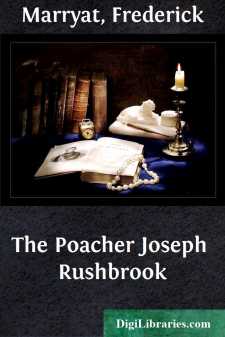Categories
- Antiques & Collectibles 13
- Architecture 36
- Art 48
- Bibles 22
- Biography & Autobiography 813
- Body, Mind & Spirit 142
- Business & Economics 28
- Children's Books 15
- Children's Fiction 12
- Computers 4
- Cooking 94
- Crafts & Hobbies 4
- Drama 346
- Education 46
- Family & Relationships 57
- Fiction 11828
- Games 19
- Gardening 17
- Health & Fitness 34
- History 1377
- House & Home 1
- Humor 147
- Juvenile Fiction 1873
- Juvenile Nonfiction 202
- Language Arts & Disciplines 88
- Law 16
- Literary Collections 686
- Literary Criticism 179
- Mathematics 13
- Medical 41
- Music 40
- Nature 179
- Non-Classifiable 1768
- Performing Arts 7
- Periodicals 1453
- Philosophy 64
- Photography 2
- Poetry 896
- Political Science 203
- Psychology 42
- Reference 154
- Religion 513
- Science 126
- Self-Help 84
- Social Science 81
- Sports & Recreation 34
- Study Aids 3
- Technology & Engineering 59
- Transportation 23
- Travel 463
- True Crime 29
The Poacher Joseph Rushbrook
Categories:
Description:
Excerpt
In which there is more Ale than Argument.
It was on a blusterous windy night in the early part of November, 1812, that three men were on the high road near to the little village of Grassford, in the south of Devonshire. The moon was nearly at the full, but the wild scud, and occasionally the more opaque clouds, passed over in such rapid succession, that it was rarely, and but for a moment or two, that the landscape was thrown into light and shadow; and the wind, which was keen and piercing, bent and waved the leafless branches of the trees which were ranged along the hedgerows, between which the road had been formed.
The three individuals to whom we have referred appeared all of them to have been indulging too freely in the ale which was sold at the public-house about half a mile from the village, and from which they had just departed. Two of them, however, comparatively speaking, sober, were assisting home, by their joint efforts, the third, who, supported between them, could with difficulty use his legs. Thus did they continue on; the two swayed first on the one side of the road, and then on the other, by the weight of the third, whom they almost carried between them. At last they arrived at a bridge built over one of those impetuous streams so common in the county, when, as if by mutual understanding, for it was without speaking, the two more sober deposited the body of the third against the parapet of the bridge, and then for some time were silently occupied in recovering their breath. One of the two who remained leaning on the parapet by the side of their almost lifeless companion was a man of about forty years of age, tall and slender, dressed in a worn-out black coat, and a pair of trousers much too short for him, the original colour of which it would have been difficult to have surmised; a sort of clerical hat, equally the worse for wear, was on his head. Although his habiliments were mean, still there was something about his appearance which told of better days, and of having moved in a different sphere in society; and such had been the case. Some years before he had been the head of a grammar-school, with a comfortable income; but a habit of drinking had been his ruin, and he was now the preceptor of the village of Grassford, and gained his livelihood by instructing the children of the cottagers for the small modicum of twopence a head per week. This unfortunate propensity to liquor remained with him and he no sooner received his weekly stipend than he hastened to drown his cares, and the recollection of his former position, at the ale-house which they had just quitted. The second personage whom we shall introduce was not of a corresponding height with the other: he was broad, square-chested, and short-dressed in knee-breeches, leggings, and laced boots—his coat being of a thick fustian, and cut short like a shooting-jacket: his profession was that of a pedlar.
“It’s odd to me,” said the pedlar, at last breaking silence, as he looked down upon the drunken man who lay at his feet, “why ale should take a man off his legs; they say that liquor gets into the head, not the feet.”
“Well,” replied the schoolmaster, who was much more inebriated than the pedlar, “there’s argument even in that and, you see, the perpendicular deviation must arise from the head being too heavy, that’s clear; and then, you see, the feet, from the centre of gravity being destroyed, become too light; and if you put that and that together, why, a man can’t stand....












